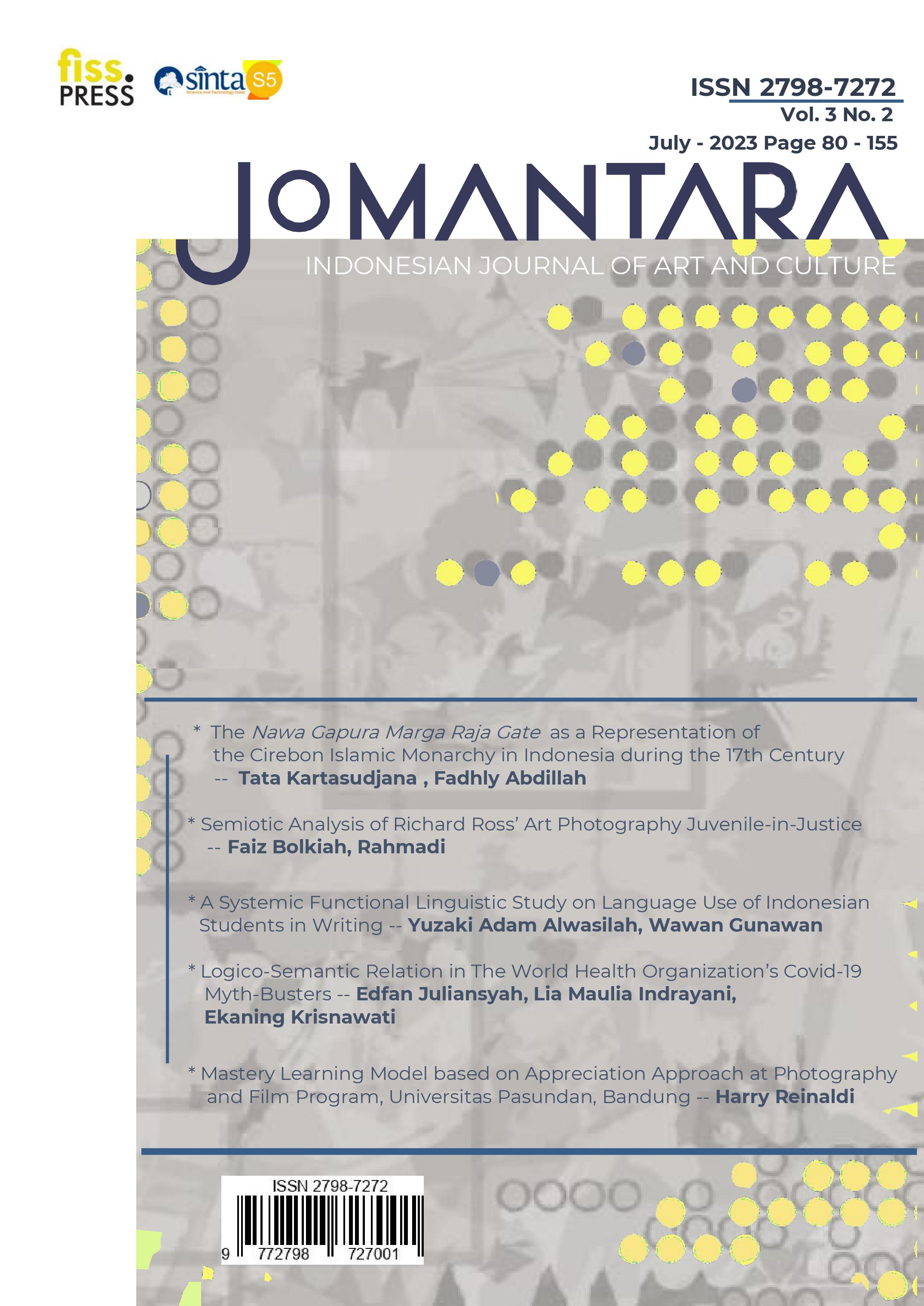A Systemic Functional Linguistic Study on Language Use of Indonesian Students in Writing
Keywords:
recount text, STAD strategy, systemic functional linguistic, task-based learningAbstract
Language is a form of cultural wealth of a nation. Analysis of the use of a language is an interesting topic to study. The current manuscript implement Systemic functional linguistics (SFL) theory which focuses on exploring the social and cultural context of language use in a piece of writing. SFL it self is an approach to linguistics that considers language as a social semiotic system which focuses on the function of language in social contexts and the choices that language users make. This paper is intended to analyze students’ recount text writing in SFL perspectives, and how teachers can assist students in solving writing problems. Specifically this study hopefully can identify in what aspects that Indonesian students usually made some errors, based on three metafunctions from SFL perspective. The finding shows that most of the students did errors in the use of tense, generic structure, and grammatical errors. Thus, Transition-Action-Details (TAD) could be used as one of the strategies in teaching writing, especially writing recount text in Indonesian context.
Downloads
References
Butt, D., Fahey, R., Feez, S., Spinks, S., & Yallop, C. (2006). Using Functional Grammar: An Explorer’s Guide (2nd Edition). Sydney: Macquarie University.
Christie, F. (1990). Genre as Social Processes. A plenary Paper Delivered at the Meanjin Reading Council Regional Conference, Brisbane (March, 23-25), PP. 74-78.
Derewianka, B. (2015). The Contribution of Genre Theory to Literacy Education in Australia. In J. Turbill, G. Barton, & C. Brock (Eds.), Teaching Writing in Today’s Classroom: Looking back to looking forward. (pp. 69–86). Norwood, Australia: Australian Literary Educators’ Association.
Dirgeyasa, I. W. (2016). Genre-Based Approach : What and How to Teach and to Learn Writing. English Language Teaching, 9(9), 45–51. https://doi.org/10.5539/elt.v9n9p45
Eggins, S. (2004). An introduction to systemic functional linguistics 2 nd Ed. New York: Continuum.
Halliday M A, HasanR. Language, Context and Text: Aspect of Language In Asocial-Semiotic Perspective (2nd ed). Oxford: Oxford University Press; 1985.
Hamied, F.A., and Emilia, E. (2015). Systemic Functional Linguistic Genre Pedagogy (SFL GP) in a Tertiary EFL Writing Context in Indonesia. TEFLIN Journal, Volume 26, Number 2, July 2015 http://dx.doi.org/10.15639/teflinjournal.v26i2/155-182.
Hyon, S. (1996). Genre in Three Traditions: Implications for ESL. TESOL Quarterly, Vol. 30, pp. 693-732.
Martin, J. R. (1997). Analyzing genre: Functional parameters. Institutions: Social processs in the workplace and school (pp. 3-39). London: Cassell.
Muhsin, M. A. (2016). Analysing the students errors in using simple present (A case study at Junior High School in Makassar). Pacific Science Review B: Humanities and Social Sciences, 2(3), 81-87.
Muntigl P and Ventola E. (2010) "Grammar: A Neglected Resource in Interaction Analysis?" New Adventures in Language and Interaction, ed. by Jürgen Streeck. John Benjamins.
Nordquist, Richard. (2021, October 18). Overview of Systemic Functional Linguistics. Retrieved from https://www.thoughtco.com/systemic-functional-linguistics-1692022
Oshima, A., & Hogue, A. (1997). Writing Academic English. New York: Addison Wesley Longman.
Peha, S. (2003). Teaching that makes sense. Carrboro: Retrieved from www.ttms.org.
Rothery, J. (1996). Making changes: Developing an educational linguistics. In R. Hasan & G.
Williams (Eds.), Literacy in Society. London: Longman.
Thompson, G. (2014). Introducing Functional Grammar (3rd Edition). New York: Routledge.
Yin, R. K. (2003). Case study research: Design and methods (3rd ed.). Thousand Oaks, CA: Sage Publications, Inc.
Downloads
Published
Issue
Section
License
Copyright (c) 2023 Publisher Universitas Pasundan

This work is licensed under a Creative Commons Attribution-NonCommercial 4.0 International License.
Copyright Notice

This work is licensed under a Creative Commons Attribution 4.0 International License.









